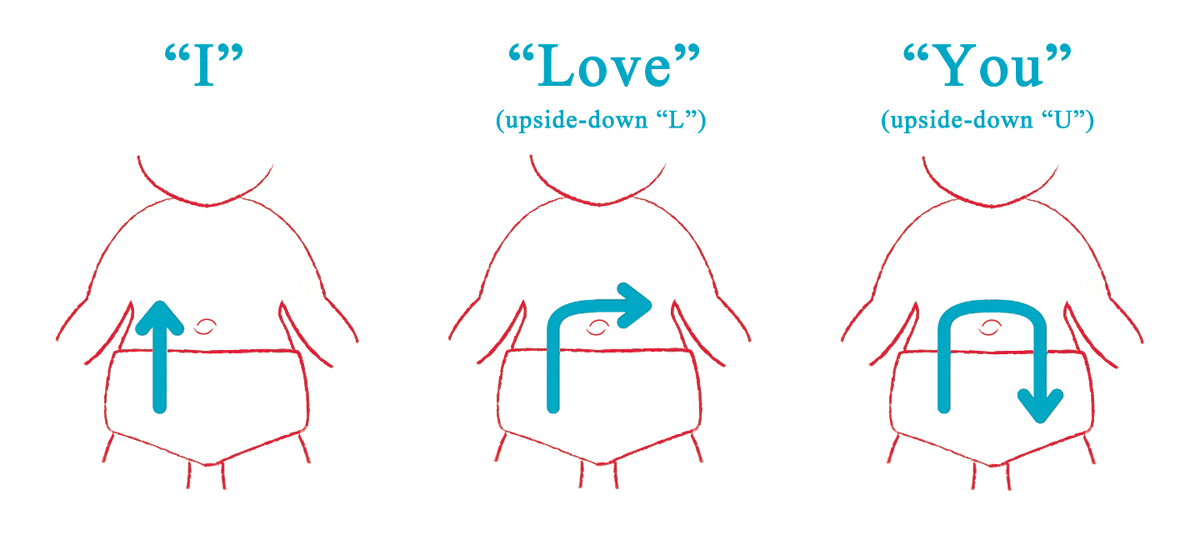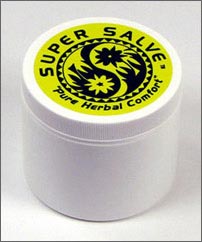Infant Constipation Relief Tips
Infant constipation is a common problem frequently observed by pediatricians and family doctors. In fact, newborn constipation accounts for 25% of all referrals to pediatric gastroenterologists worldwide.
Constipation is usually diagnosed when an infant or child has hard stools and/or has difficulty defecating. In many instances infants are noted to strain excessively and have difficulty passing stools, even though their stools may be of normal consistency. This type of difficulty in passing stools is thought to represent a delay in maturation of intestinal motility.

Before we present our infant constipation relief tips, let's review newborn constipation symptoms and what constitutes a normal bowel movement frequency.
Symptoms of Constipation in Infants
- Hard and/or dry stools that are difficult to pass, regardless of frequency
- Grunting or visible discomfort when passing a bowel movement
- Reduction in the frequency of bowel movements, particularly when your infant hasn't had one for more than two days
What Causes Newborn Constipation?
Normally, as digested food progresses through the intestinal tract, water and nutrients are absorbed and the waste material becomes stools. For a soft stool to form, enough water must remain in the waste material, and the lower intestinal and rectal muscles must contract and relax to move the stool along and out. A malfunction of either or both of these mechanisms -- too little water or poor muscle movement -- can cause constipation.
Being plugged up with a hard stool for three days can be very uncomfortable, so of course your baby might become quite colicky.
Your infant should be checked by a pediatrician if his or her bowels do not move daily.
How Much and What Sort of Stool Is Normal?
The first stools that come out of a newborn are thick, sticky, tarry stools called meconium. (Unlike later feces, meconium is composed of materials ingested during the time the infant spends in the uterus: intestinal epithelial cells, lanugo, mucus, amniotic fluid, bile, and water.)
A newborn infant should have his or her first stool within 24 hours after birth. Failure to pass a stool by 48 hours of life may signify a more serious condition, such as Hirschsprung's disease, meconium ileus due to cystic fibrosis, or hypothyroidism. Hirschsprung's can cause enterocolitis with fever, diarrhea, and exhaustion, and can be fatal if diagnosed too late. Further evaluation of the infant is needed if no bowel movement has occurred within the first 48 hours.
During the first week of your baby's life, the initial tarry meconium stools give way (in breastfed babies) to soft, yellow, breast-milk stools. By the time a baby is one week old, an average of 8 to 10 of these pleasant (as stools go) stools should occur each day.
For most breast-fed babies, the number drops to about four stools per day by four weeks old (although many infants have a different pattern). Formula-fed babies usually defecate less often at this age; the stools do not change much with time, at least not until solid foods are introduced (because unlike breast milk, formula doesn't change over time). Formula-fed stools are often tan or yellow at this stage, and a little firmer than breast-milk stools. For any baby, tan, yellow, green, or brown stools can all be normal. By eight weeks old, the average number of stools drops to one to two per day.
Unfortunately, many doctors erroneously tell parents that many babies will pass stools only every three to eight days or less, and that this can be completely normal. One misguided train of thought here is that breast milk is such an amazing food that it leaves very little in the way of waste.
Just like adults, infants children need to move their bowels daily for optimal health. In his book Childhood Diseases, Dr. John R. Christopher states that "over 90% of all diseases and malfunctions of children's bodies (as with adults) stem from the unclean intestinal tract, constipation with infrequent or difficult evacuation of the feces, retention of the feces, and lack of coordination in the nerve and muscle functions of the colon and bowel." I agree that in order for your child to maintain optimal health and avoid many common childhood illnesses, he or she needs to have bowel movements daily.
What To Give a Newborn for Constipation
When it comes to home remedies for constipated infants, the most important advice I can give you is NOT to start your baby on any kind of laxative whatsoever. Regular laxative use during infancy can lead to many, many problems over your child's life. Instead, use one or more of the following baby constipation remedies:

- If you want to do something when infants grunt, push, or strain in an effort to defecate, try picking them up to allow gravity to assist them in their efforts and/or gently holding their knees against their chest to help them achieve a "squatting" position (the natural position for a bowel movement).
- Breast milk is the easiest food for babies to digest. If at all possible, breastfeed for as long as possible.
- Babies need water. Offer newborns a small eye dropper full of water. When your baby is ready, give him or her a bottle of water to sip on throughout the day. You might add a bit of cooled-off rooibos tea to the bottle. (Aspalathus linearis, commonly known as rooibos, is a natural herb unique to the Cederberg Mountain region of South Africa. Rooibos is rich in nutrients and caffeine-free.)
- The best tool I have found to use is magnesium. Magnesium is a safe, therapeutic, laxative-like supplement that can be titrated to bowel tolerance. Magnesium stimulates the peristaltic muscles to evacuate the lower bowel. It also nourishes and strengthens the intestinal muscles so they will function better on their own and draw more water into the bowel. The Ortho Reacted Magnesium formula that I recommend is largely magnesium citrate. I recommend that parents start with 1/16 of a tablespoon of this formula in some water for their infants, and slowly increase the dosage until a daily bowel movement consistently occurs.
- Abdominal massage is a fulfilling way to nurture your infant. It aids digestion, helps to relieve colic, eases tension, regulates breathing, and spurs growth. To help your baby's bowels move, try my variation of a simple "I love you" massage technique. With "I L U" in mind, start at the bottom right side of your baby's abdomen and, using small, gentle circular movements, gently rub toward the top right, forming the letter "I". Stop when you feel the rib cage. Repeat this action, but also then move across the abdomen just above the belly button toward the baby's left side, forming an upside-down "L". Repeat this progression a third time, also moving downward toward the bottom left of the baby's abdomen to form an upside-down "U". Repeat this entire "I love you" massage pattern five to ten times.


- To administer a lukewarm water enema, lubricate the tip of a bulb syringe with Super Salve. Insert the tip of the bulb syringe half an inch (1.25 cm) into your baby's rectum. The bulb should contain approximately 1-3 tablespoons of lukewarm water. Gently squeeze the water into the colon. Ensure that only the water goes into the colon, not any air that might be in the bulb. Wait a few minutes for your baby to pass a stool. Repeat this process if necessary.
You can also add a bit of our Chamomile and Sage Goat Milk Enema Soap to the lukewarm enema water for gentle, non-irritating, and safe bowel stimulation. This soap is also safe for washing your baby's skin.
In addition to its use as an enema lubricant, Super Salve can also be used to soothe diaper rash and eczema.

I know from personal and professional experience that parenting an infant through constipation can be very trying. I know these tips will help you and your baby. When considering baby constipation treatments, please be mindful of the following misconceptions to avoid potential harm.
Common Misconceptions about Infant Constipation
- Glycerin suppositories - A glycerin suppository could be useful at the outset to get that first stool moving, but even doctors discourage its regular use. A small amount of water inserted into the colon with an enema bulb syringe is just as effective, and healthier. Do not use glycerin suppositories.
- Karo corn syrup - Do not feed Karo corn syrup to your infant as a laxative. Sugar in any form is not healthy for infants.
- Mineral oil - Do not feed mineral oil to your infant as a laxative. Mineral oil is petroleum-derived and therefore I do not feel it is safe. It can interfere with vitamin absorption and has no nutritional benefits.
- Fruit juice - Many doctors encourage parents to feed fruit juice to their infant when he or she is constipated. I believe that babies, as well as adults, should limit the amount of fruit juice that they drink, as this can lead to a variety of sugar overconsumption problems. Too much juice can cause stomach aches, tooth decay, and perhaps obesity over time. In addition, when children fill up on juice, they may miss other important sources of nutrition. Even the American Academy of Pediatrics has issued recommendations to limit the amount of fruit juice for children.
By Kristina Amelong, CCT, CNC
I-ACT-Certified Colon Hydrotherapist
Certified Nutritional Consultant

▶︎ Need more detailed guidance in relieving infant constipation?
Personal Health Consultations with
Kristina Amelong, CCT, CNC
For personalized support with your infant's digestive health, I would be happy to assist via a scheduled phone consultation. I charge an affordable $2.25 per minute, for as many or as few minutes as you need!
First complete any relevant sections of my secure online intake form. Upon submitting the form, you will be prompted to schedule a consultation time with me via my online booking system.
If you are an international client who would like to use WhatsApp for your scheduled consultation, please email us for instructions on how to contact me at the time of your consultation.